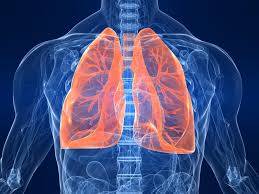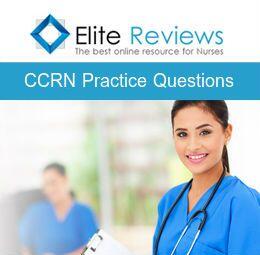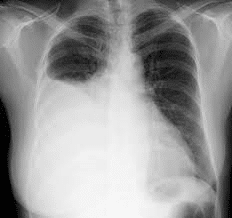CCRN Lobectomy
CCRN Lobectomy Overview
A lobectomy is a surgical procedure where an entire lobe of your lung is removed for a variety of reasons that may include a lung cancer diagnosis, infection, COPD or benign tumors. There are three lobes of your right lung and two lobes of your left lung. The procedure includes either a few small incisions (minimally invasive) or one longer incision (thoracotomy) on the side of your chest based on your particular diagnosis. With either approach, along with a lobe, nearby lymph nodes are also removed because of the possible spread of disease or cancer.Patient Population
A lobectomy may be done when a problem is found in 1 lobe. A lobe may be removed so that disease isn't spread to the other lobes. This may be the case with tuberculosis or certain types of lung cancer. Chest and lung health conditions that may be treated with lobectomy include:- Tuberculosis (TB)
- Lung abscess
- Emphysema
- Benign tumor
- Lung cancer
- Fungal infection
Risks
As with any procedure, there is a risk of bleeding or infection. You will be given antibiotics around the time of surgery to help prevent infection, and the risk of bleeding is minimal with this procedure. There is a small risk that you will need a drainage tube in for a prolonged period of time due to a leak in your lung. This usually heals on its own and will not require further procedures. As with any major surgery, there are also risks related to general anesthesia, such as a heart attack, stroke, blood clots or pneumonia.Treatment
The procedure almost always needs an inpatient stay. This means that it may be done as part of a longer stay in the hospital. The way the procedure is done may vary. It depends on your condition and your healthcare provider's methods. In most cases, the procedure will follow this process:- You will be asked to remove your clothes. You will be given a hospital gown to wear. You may be asked to remove jewelry or other objects.
- You will lie down on an operating table.
- An IV (intravenous) line will be put into your arm or hand.
- You may be given antibiotics before and after the procedure.
- You will be given general anesthesia. This is medicine that prevents pain and lets you sleep through the procedure.
- A breathing tube will be put into your throat and hooked up to a breathing machine (ventilator). Your heart rate, blood pressure, and breathing will be watched during the procedure.
- A soft, flexible tube (catheter) may be put into your bladder. This is to drain urine during the procedure.
- Hair in the area of surgery may be trimmed. The skin in the area will be cleaned with an antiseptic solution.
- A cut (incision) will be made on the front of your chest at the level of the lobe to be removed. The cut will go under your arm around to your back.
- When the ribs can be seen, a special tool will be used to spread them apart. The lung lobe will be removed.
- One or more tubes may be put into your chest. These are to help remove air and fluid after surgery.
- The cut will be closed with stitches (sutures) or staples. A bandage or dressing will be put on the area.
- A thin tube (epidural catheter) may be put in the area of the lower spine. This is done to send pain medicine into your back. It may be done in the operating room or in the recovery room.
Critical Care Courses
Overview
- Elite Reviews Offers A Variety Of Online Courses That Will More Than Adequately Help Prepare The Critical Care Nurse To Pass The National Exam.
- Each Course Includes Continuing Education Credit and Sample Questions.
Continuing Education
- Each Of Our Online Courses Has Been Approved Continuing Education Contact Hours by the California Board of Nursing
- Login To Your Account In Order To Access The Course Completion Certificate Once The Course Is Complete.
CCRN Free Trial
- FREE Sample Lecture & Prep Questions
- Available For 24 Hrs After Registration
- Click Free Trial Link To Get Started - CCRN Free Trial
How It Works
How It Works
- First - Purchase The Course By Clicking On The Blue Add To Cart Button - You Will Then Be Prompted To Create A User Account.
- Second - After Creating An Account, All 3 Options (90, 120 or 150 Days) Will Be Listed. Select The Option You Desire And Delete The Other Two.
- Third - You Will Be Prompted To Pay For The Review Using PayPal - After Payment You Will Be Redirected Back To Your Account.
- Last - Click The Start Button Located Within Your Account To Begin The Program
- 150 Sample Questions
- Q & A With Rationales
- Approved For 5 CEU's
- 90 Days Availability
- Cost $75.00
- 1250+ Sample Questions
- Q & A With Rationales
- Approved For 25 CEU's
- 90 Days Availability
- Cost $200.00
CCRN Practice Questions Bundle
- 1350+ Sample Questions
- Q & A With Rationales
- Approved For 30 CEU's
- 90 Days Availability
- Cost $225.00
CCRN Review Course
- Option 1
- Lectures & 1250+ Questions
- Approved For 35 CEU's
- 90 Days Availability
- Cost $325.00
- Option 2
- Lectures & 2000+ Questions
- Approved For 40 CEU's
- 90 Days Availability
- Cost $350.00
CCRN Review Course Bundle
- Option 3
- Lectures & 3000+ Questions
- Approved For 70 CEU's
- 90 Days Availability
- Cost $375.00









